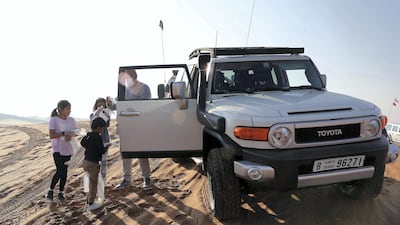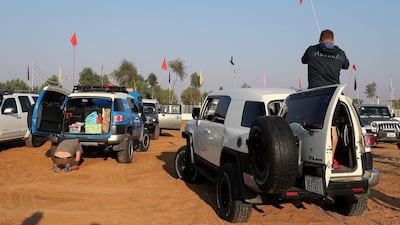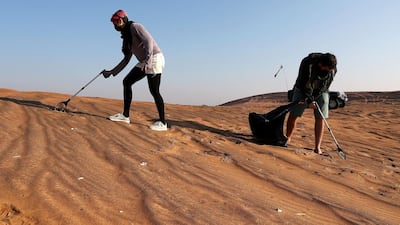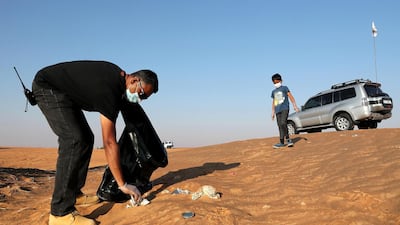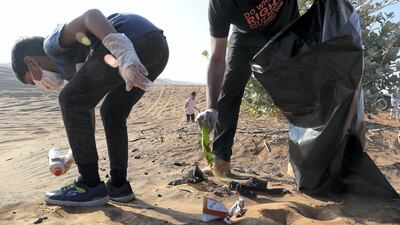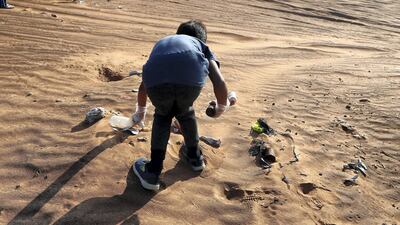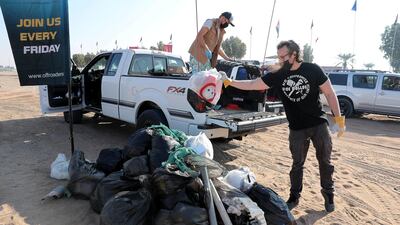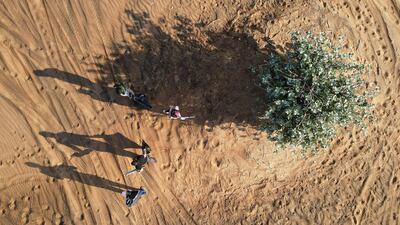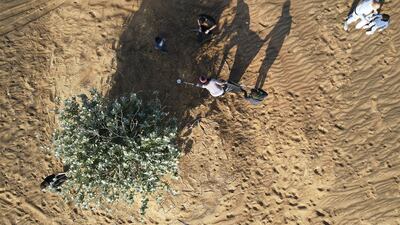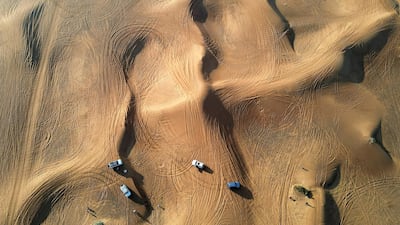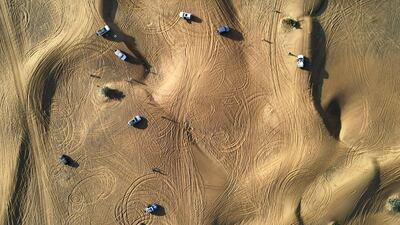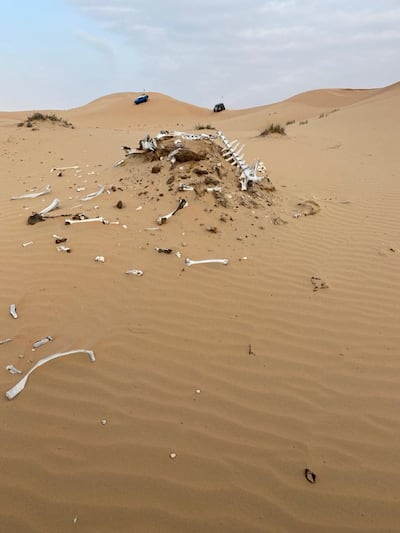Related: Hundreds of UAE camels have died from eating plastic bags, study shows
A portable toilet, children's toys and mountains of plastic were among the items collected by off-road drivers during a desert clean-up in Sharjah.
A convoy of 23 vehicles from the Offroaders.ae group drove into the Al Badayer region on Saturday to clean up piles of household and industrial waste scattered across the desert.
Camel bones photographed by the group offered a stark indication of the damage done to wildlife that eat the discarded plastic, an increasingly common problem in the UAE.
While the flesh and carcass of the animal had long since decomposed, plastic remains were visible in what would have been the camel's stomach.
Russian Pavel Kashirskiy, an off-road marshal at the Offroaders driving club, was shocked.
“This is a very popular destination with tourists, so we expected to have some rubbish, but nowhere near the volume we actually found,” he said.
“It was enough to fill a container of 10 cubic metres, so substantial.”
The group collected more than a hundred industrial sacks of rubbish from five square kilometres of desert in just four hours.
The club's drivers make weekly trips into the desert to tackle the challenge of driving in the sand, but the increase in rubbish turned their attention to staging a clean-up.
“This idea is part of our commitment to the desert,” said Mr Kashirskiy, who lives in Dubai Marina and works in the oil and gas industry.
“It is a resource we enjoy, so we need to keep it clean and preserve it for the future.
“I was very surprised with what we found. There was a portable toilet, spark plugs, baby toys and all kinds of household waste. It was shocking to see what people throw out.
“The amount of rubbish has become steadily worse in the three years I have been driving into the desert.
“We find plastic bottles on the top of sand dunes in remote areas that are hard to reach. Now, we are also seeing a lot more face masks.
“Just a few weeks ago, I photographed the remains of a camel, and there was plastic in its stomach.”
Since 2008, extensive research on deaths of camels has been completed by Dubai’s Central Veterinary Research Laboratory.
In the 30,000 camels checked since 2008, about 300 died as a result of ingesting plastic.
A study published in the Journal of Arid Environments reported masses made of plastic bags, bottle tops, rope and plastic bottles were often found undigested in the stomachs of dead camels.
Lead researcher, laboratory director Dr Ulrich Wernery, was unsurprised by the findings of the off-road drivers and called for action.
“We first saw this issue in camels some 20 years ago,” he said. “It is not just an issue for them, but also gazelles and ostriches.
“Sheep, goats and marine animals are also vulnerable to plastic and it has increased every year.”
While plastic is increasingly found in accessible desert areas, it is also appearing in more remote regions, said Dr Werney.
“Along the E611 in particular, there is rubbish and plastic everywhere in the desert, particularly where people camp,” he said.
"Plastic can travel 100km on the wind from the hotspots.
“It is the responsibility of people to keep the desert clean. Often they do not realise the damage they are doing, or just don’t care.
“Education is the most important thing.
“There has been talk of banning single use plastic, but that has not yet happened.”
